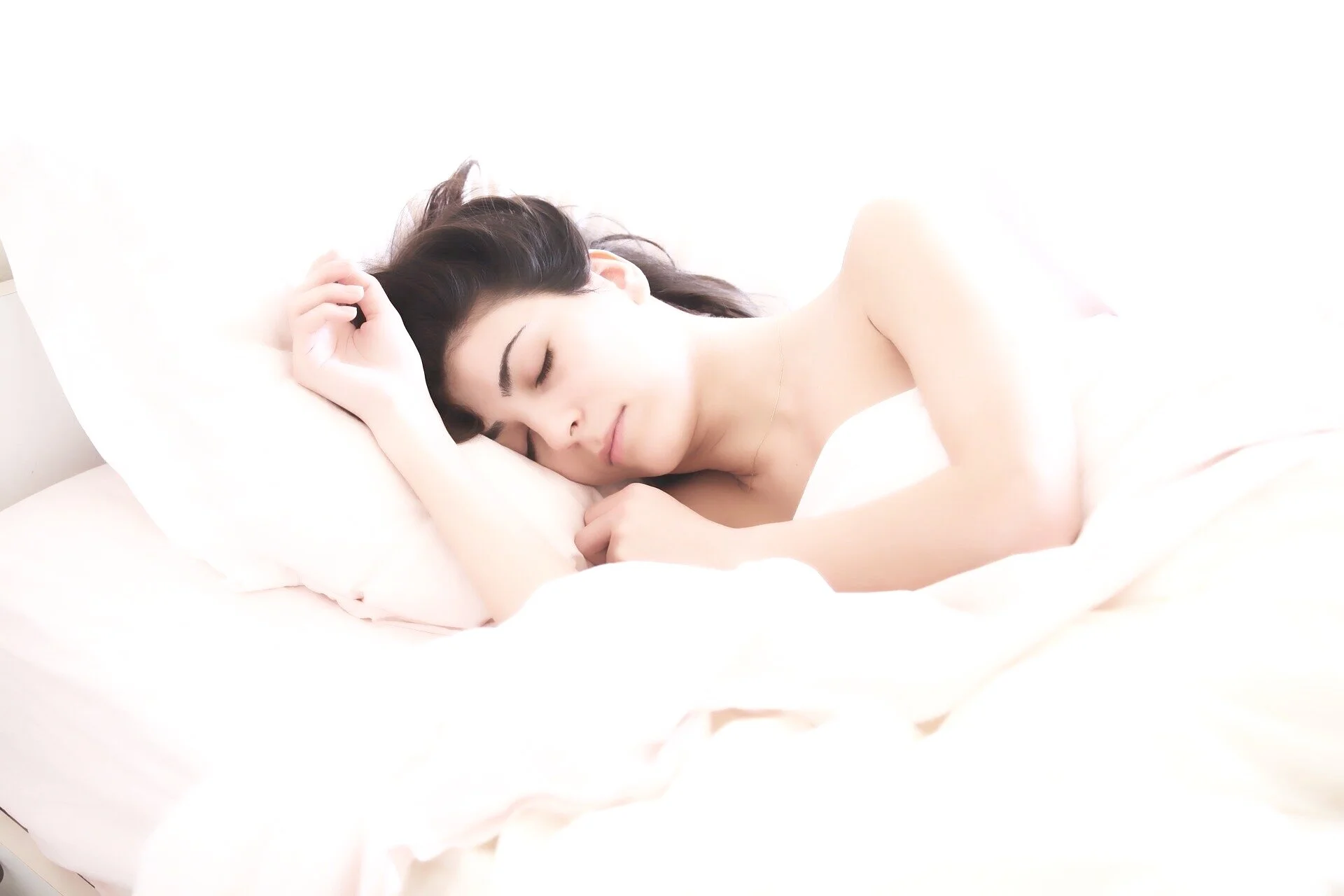Get Some Sleep
I have struggled with insomnia for my entire life.
As a child, I couldn’t sleep at my friends’ houses because I had a hard enough time sleeping at my own house, let alone anywhere else. I was always a very light sleeper, sensitive to light and sound. I was also anxious, and kept all of my emotions bottled tightly inside. I would lay awake for hours, my head spinning with random thoughts and worry.
Beginning in high school, I tried various sleep aids, such as Benadryl and Paxil, to calm my mind at night to help me sleep. As an adult, I tried other sleep medications, such as Klonopin, but these are highly addictive and not good for your body, so I ditched those as well. I continued to struggle, some nights not sleeping at all. But today, while I can’t say that sleep is something I have mastered, I can say that my sleep these days is the best it has ever been!
We all know that sleep is really important; studies have even shown that people who don’t sleep enough have shorter lifespans! Lack of sleep impacts you day-to-day (e.g., your focus and mood during the day) and long-term (e.g., your risk of heart disease). But some of us can’t effortlessly sleep more just because we decide to! And, if you’re like me and struggle to sleep well, you are probably tired of hearing recommendations to drink warm milk or Sleepytime tea; you need something much more effective. I wanted to share some of the strategies and products that have helped me sleep better:
Meditate: The thing everyone talks about but few actually do. I am not nearly as consistent about meditating as I should be, but I’ve noticed that when I meditate before bed, I fall asleep faster and sleep deeper. I use the free version of the Insight Timer app, and my favorite meditations are by Mary Maddux and Joanna Zajusz. If I listen to one meditation and still feel wired, I listen to another. In particularly stressful times, I meditate during the day as well to lower my cortisol.
Unplug: When I first heard the recommendation that I should avoid tech before bed and keep it out of the bedroom, I rolled my eyes. How would I wake myself up? Isn’t it OK as long as I keep my phone on Do Not Disturb? However, I’ve found that it really makes a difference. I try to avoid watching TV right before bed, and I almost always leave my phone in the living room when I go to bed. I use an old fashioned alarm clock to wake myself up. I no longer grab my phone every time I think of something I just have to look up right then, or to check for messages, or to scroll mindlessly through Pinterest or Instagram, because my phone is not accessible to me at night. You deserve and need some time to yourself, away from notifications.
Block it out: I avoid any bright lights right before bed and use my Himalayan salt lamp, which has a softer glow and helps me ease into sleep. We put up blackout blinds and covered up any little power lights with electrical tape, because they can interfere with sleep. It’s not sexy, but I always wear ear plugs and often an eye mask. Do what you have to do to minimize light and sound!
Supplements: My list of supplements changes pretty frequently, but this is what’s working for me right now as it relates to sleep:
Magnesium Glycinate: I take this before bed. This can be tough on the stomach, so you might have to play around with the dosage or use a topical oil.
Melatonin: I take a small dose before bed.
Alani Nu Balance: This has been amazing for balancing my hormones, which influence sleep.
Talk about it: While I grew up keeping my emotions to myself, as an adult I have learned how to let them out through therapy. Being more open and honest has not only helped strengthen my relationships, it has also helped my sleep, as I’m not holding on to so much anxiety at night.
I hope that these tips help you sleep better, and I will edit this post as I find new methods for improving my own sleep!

